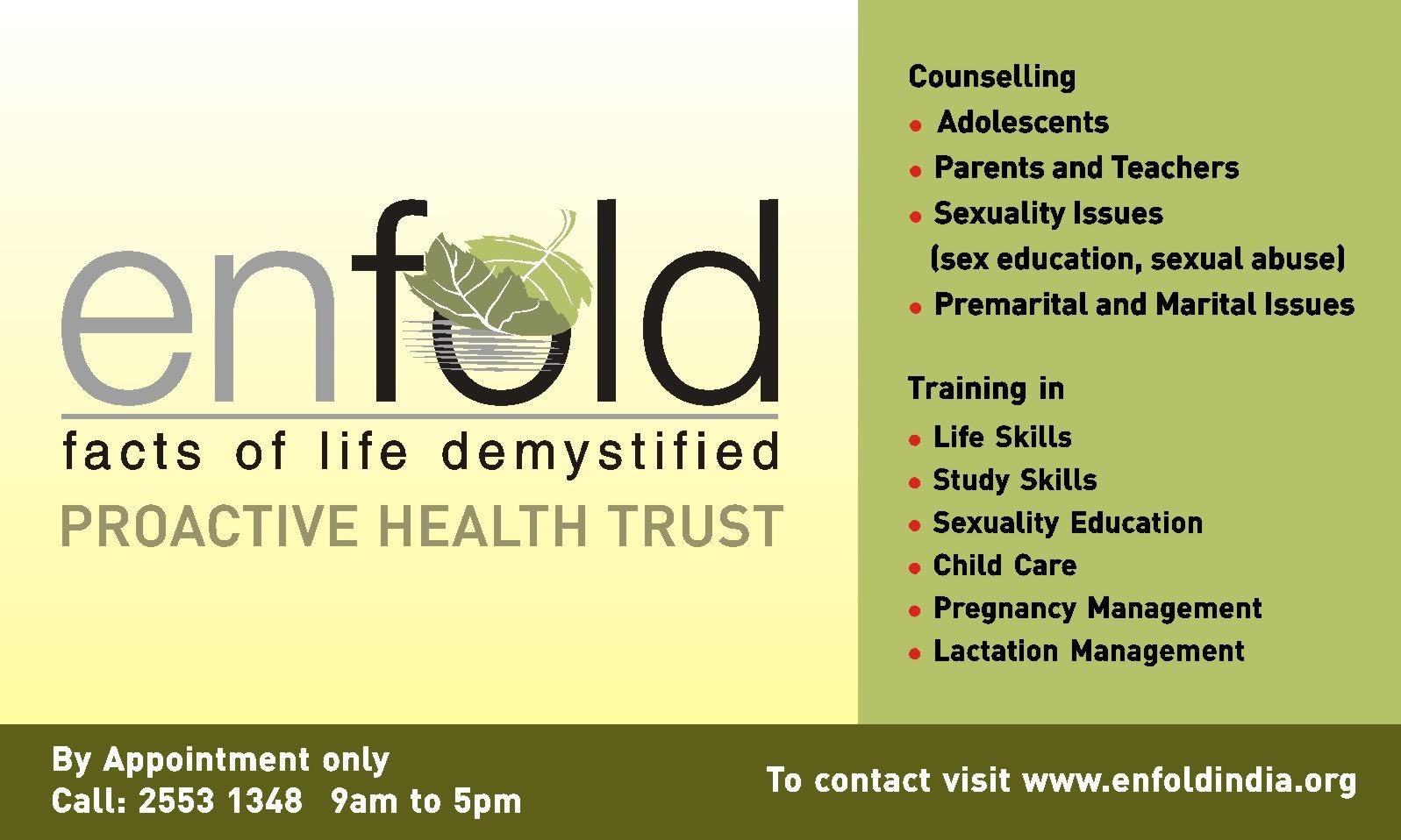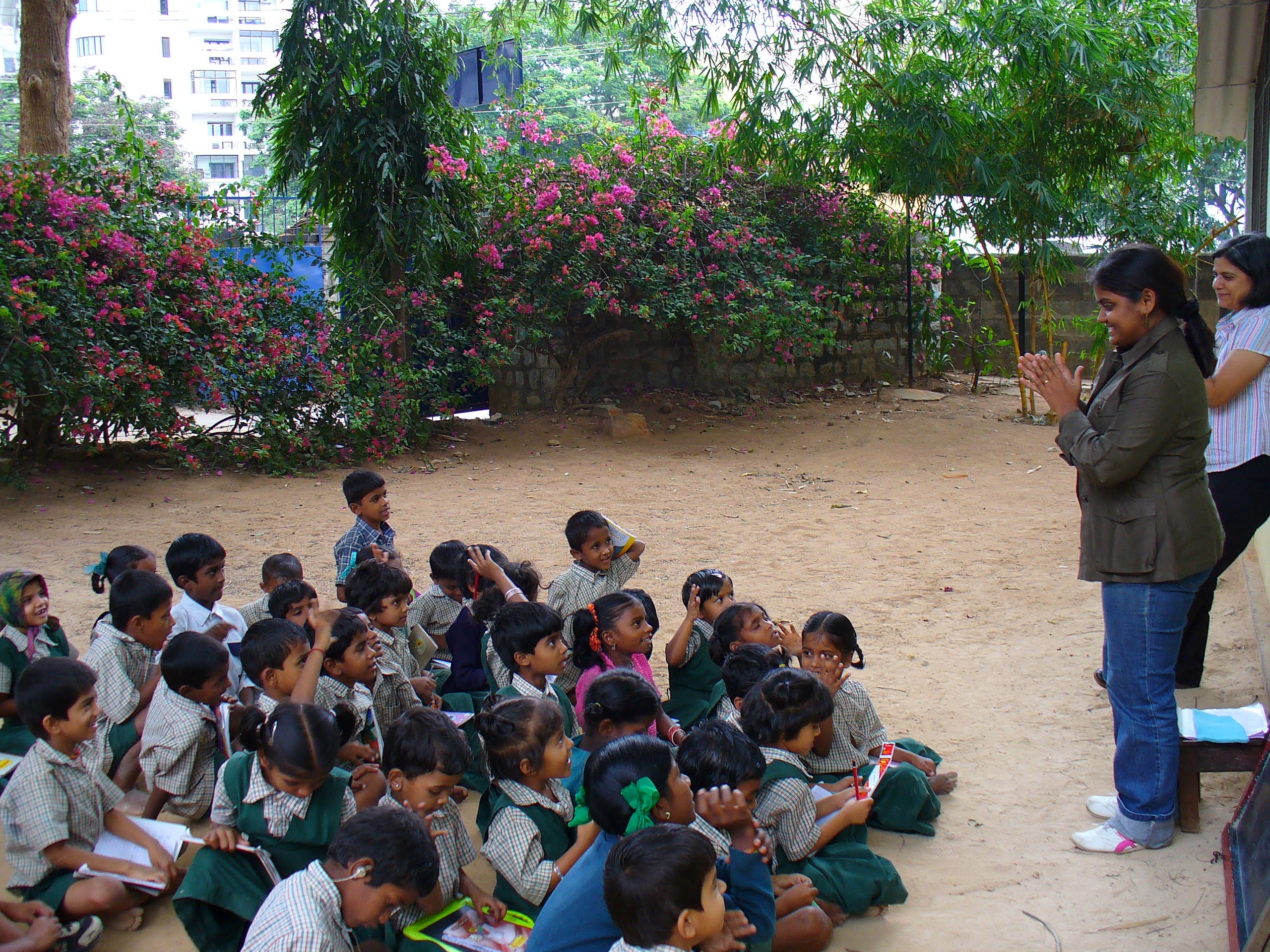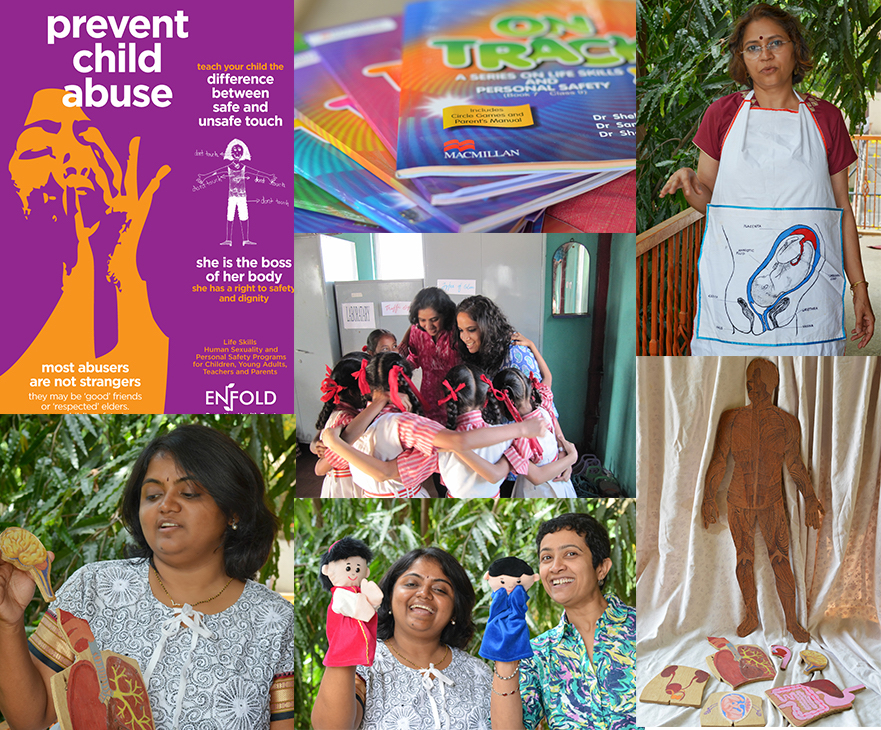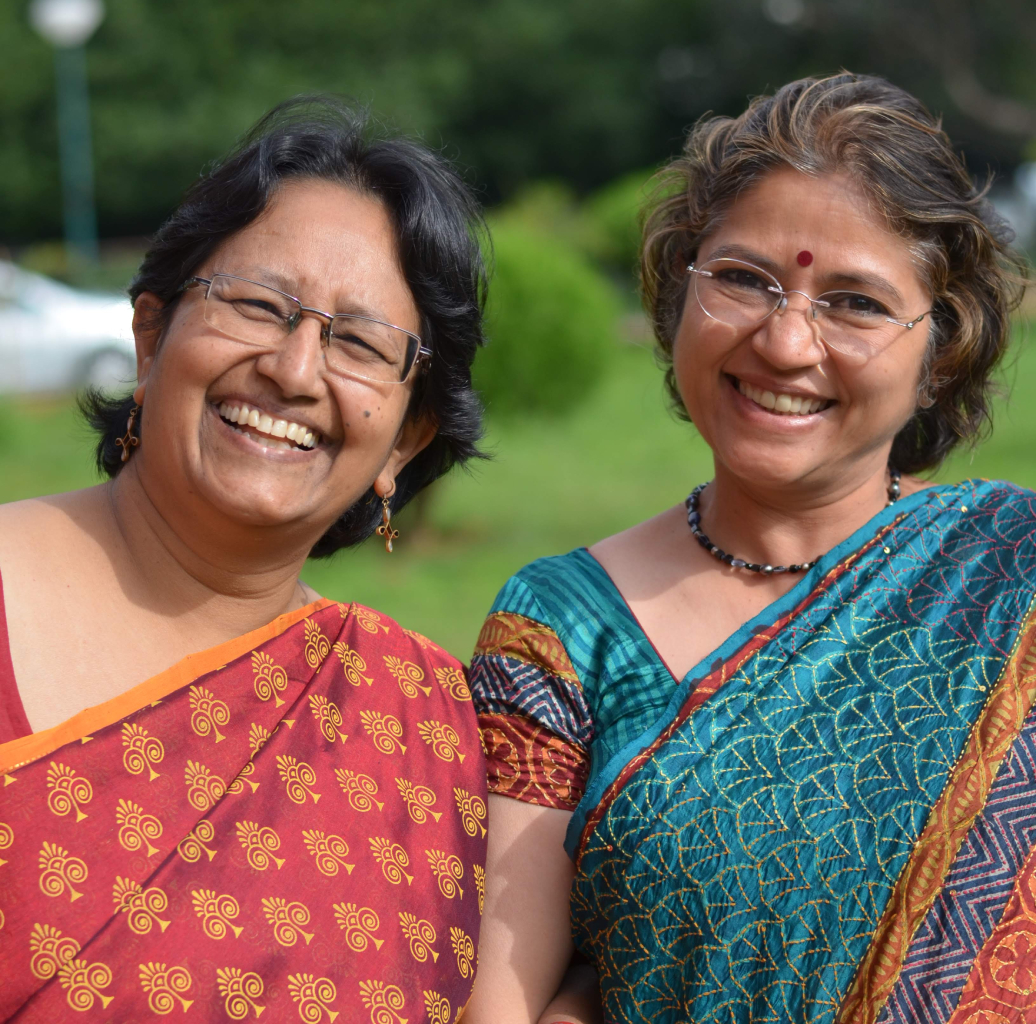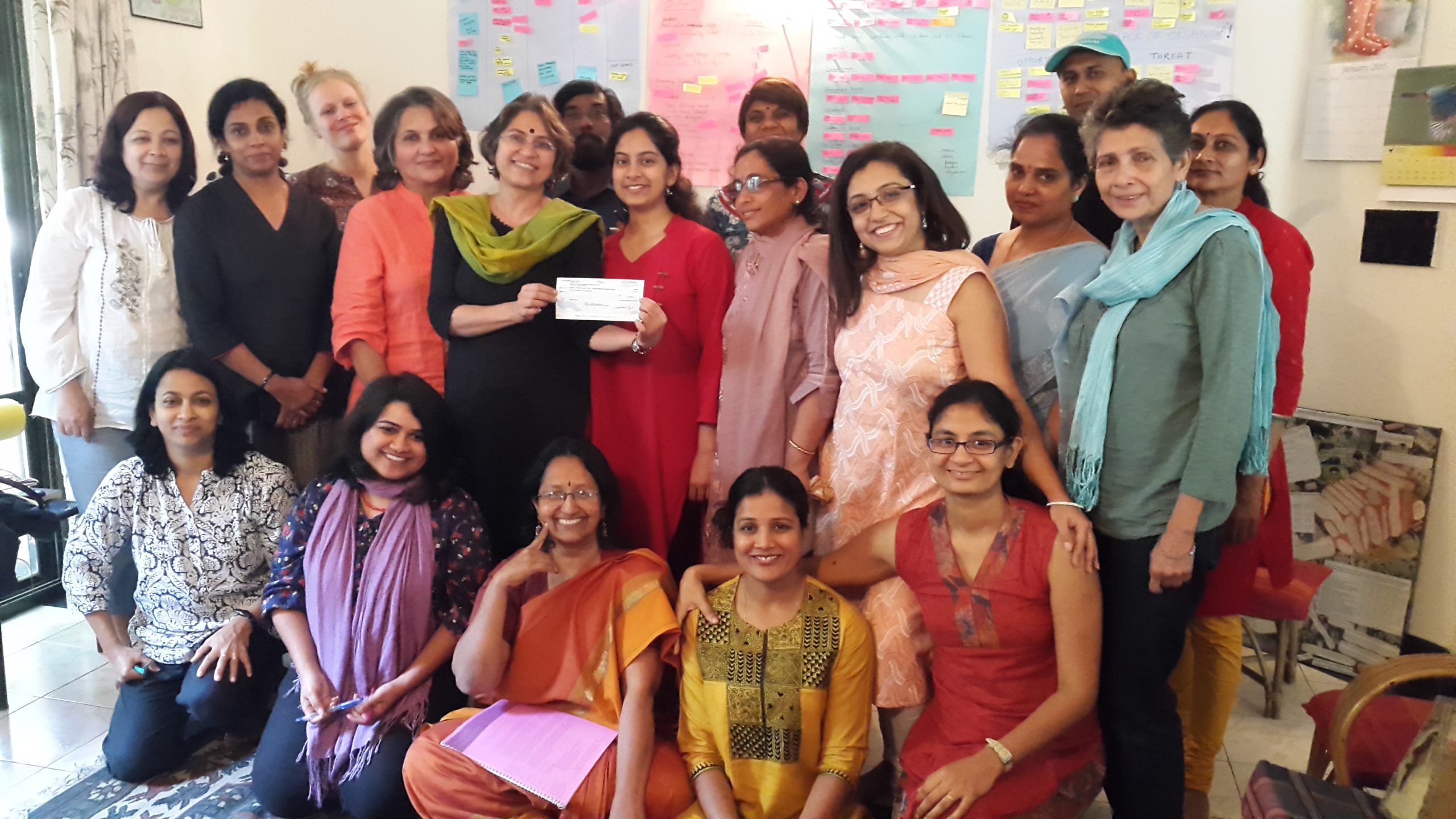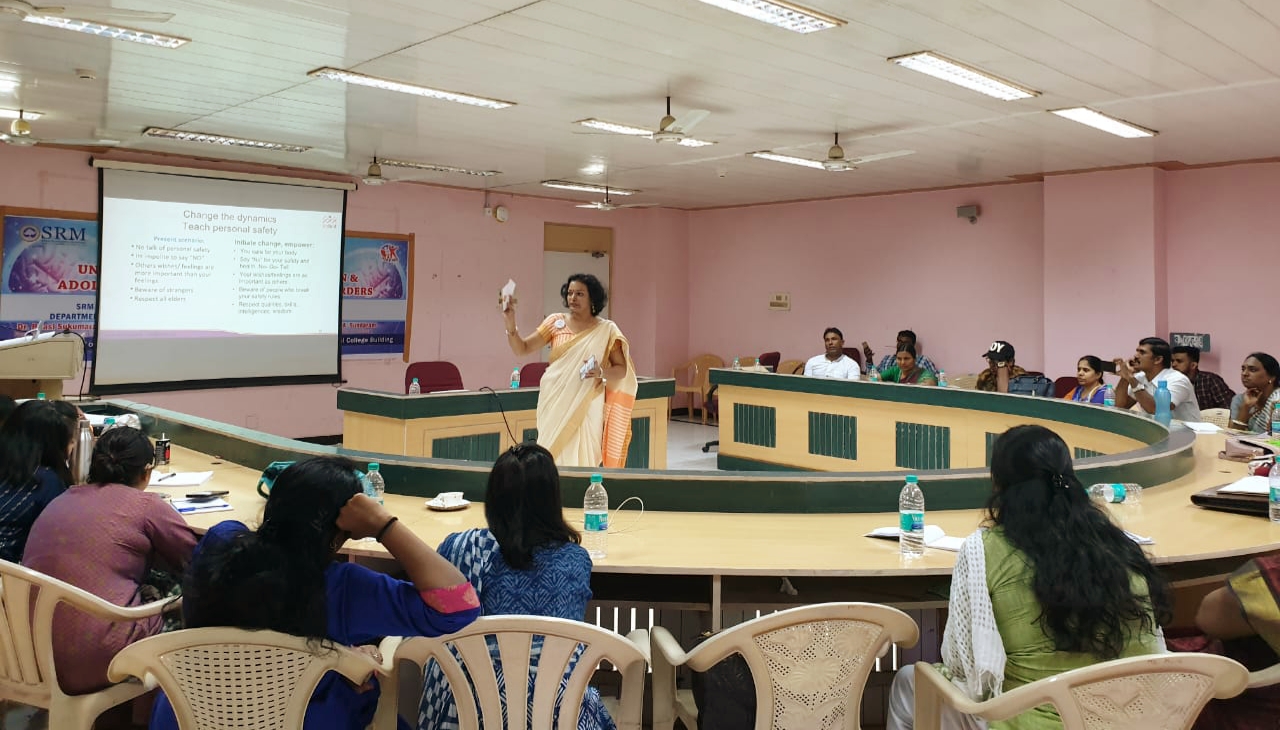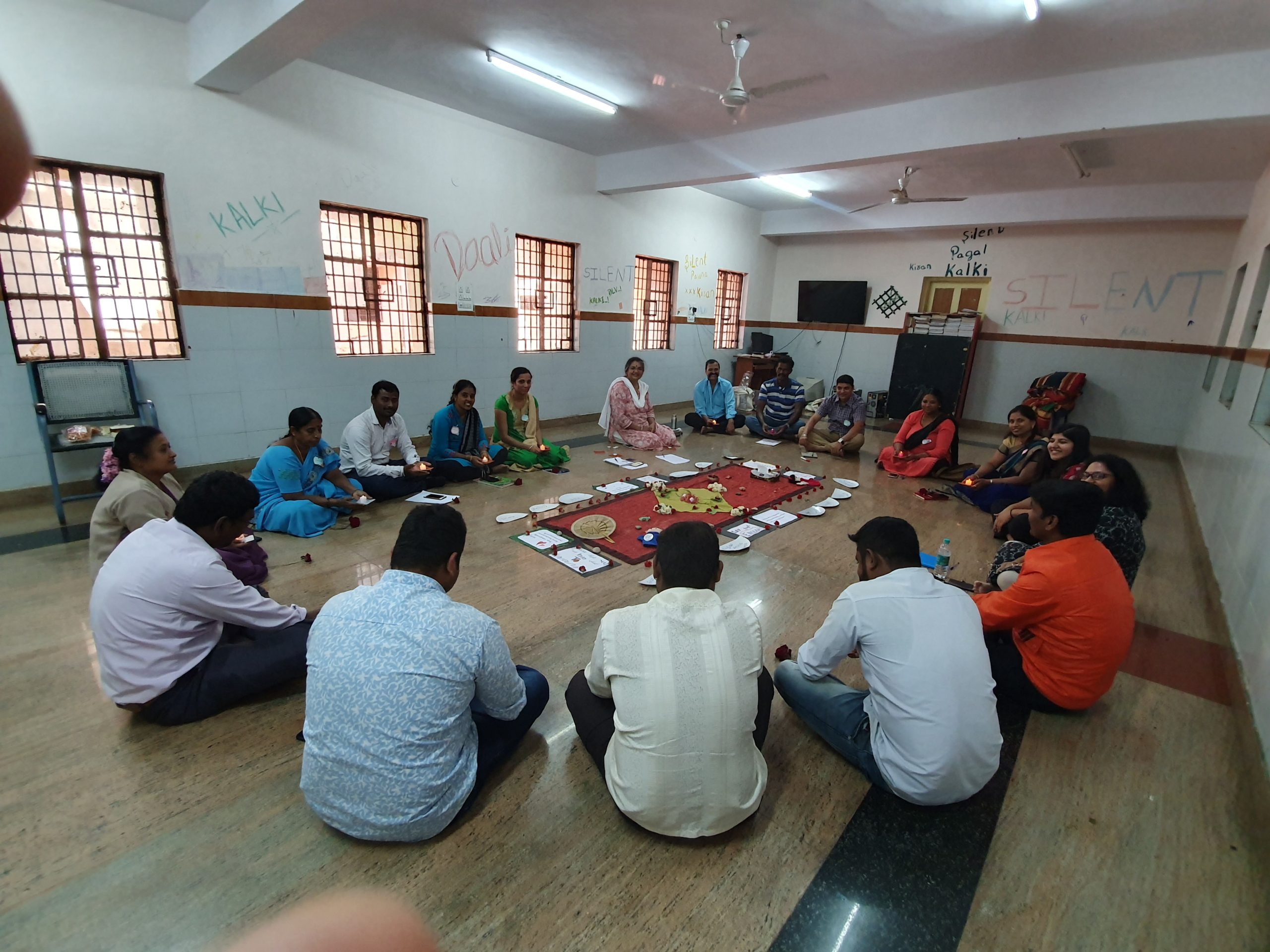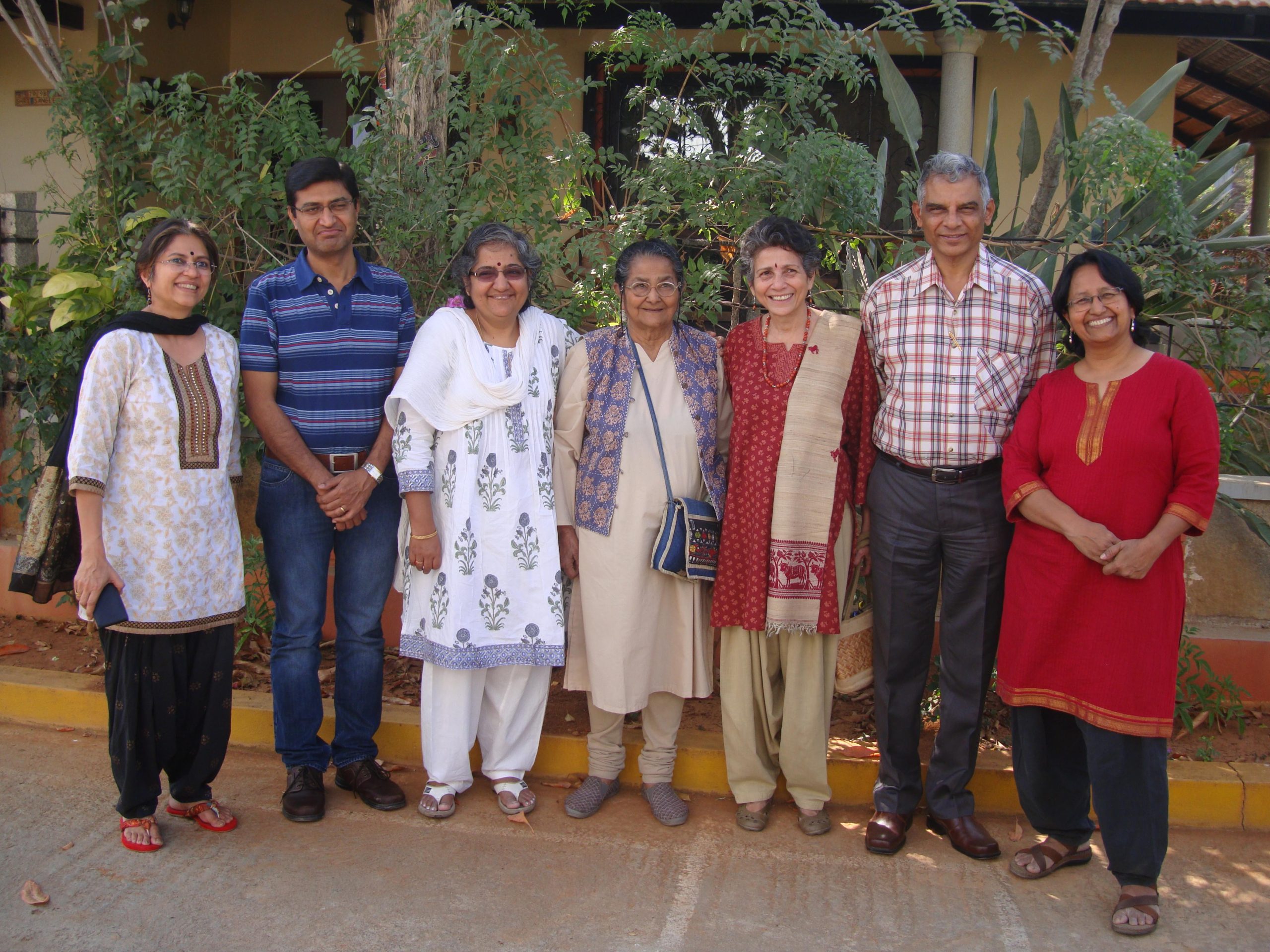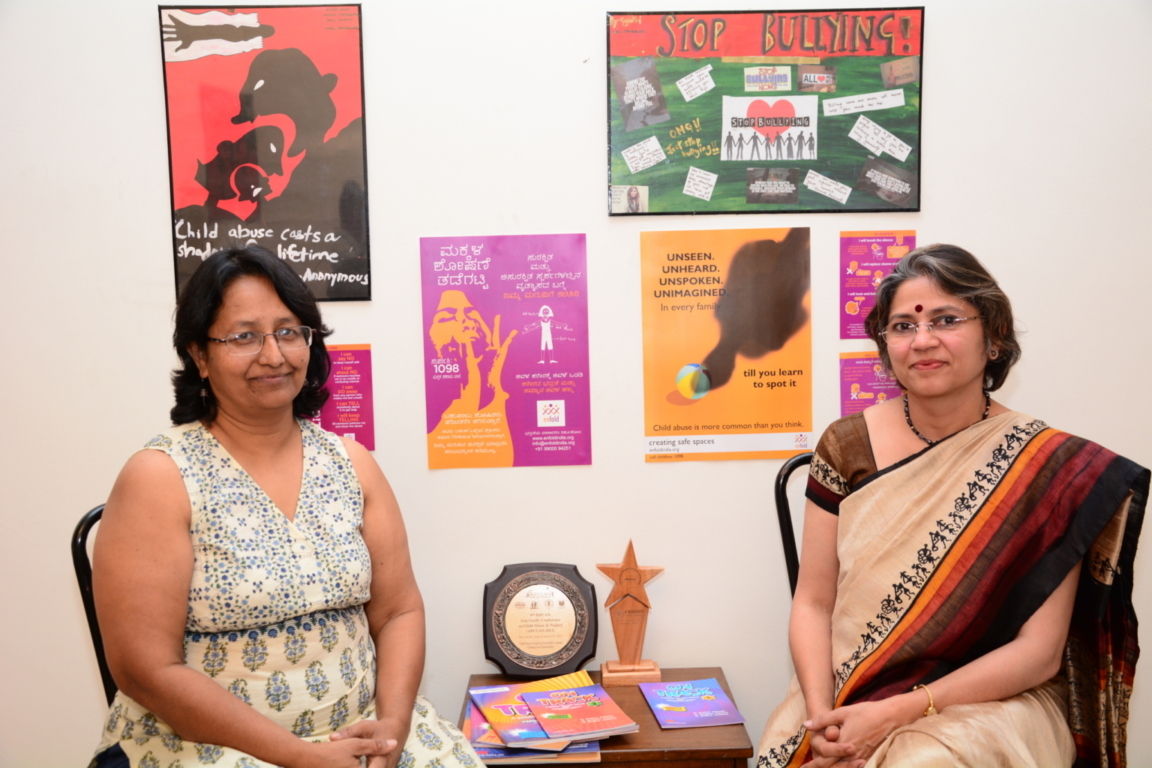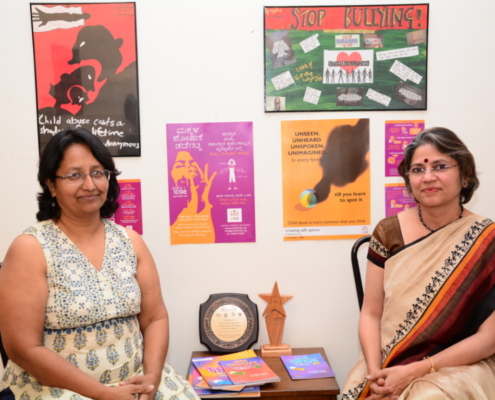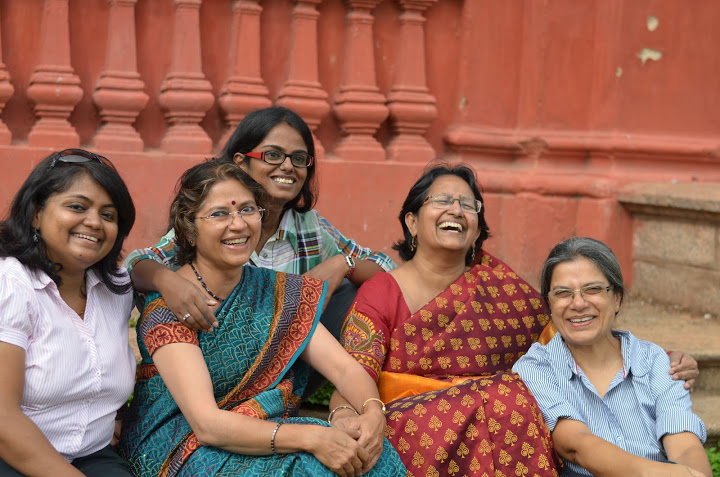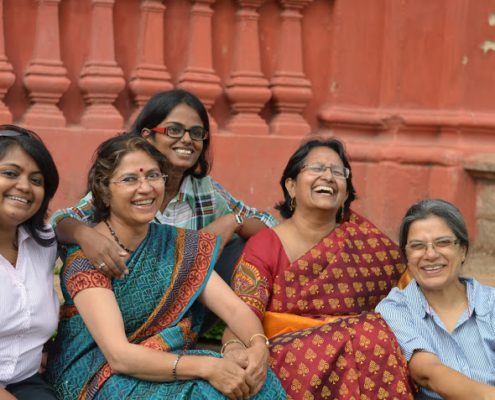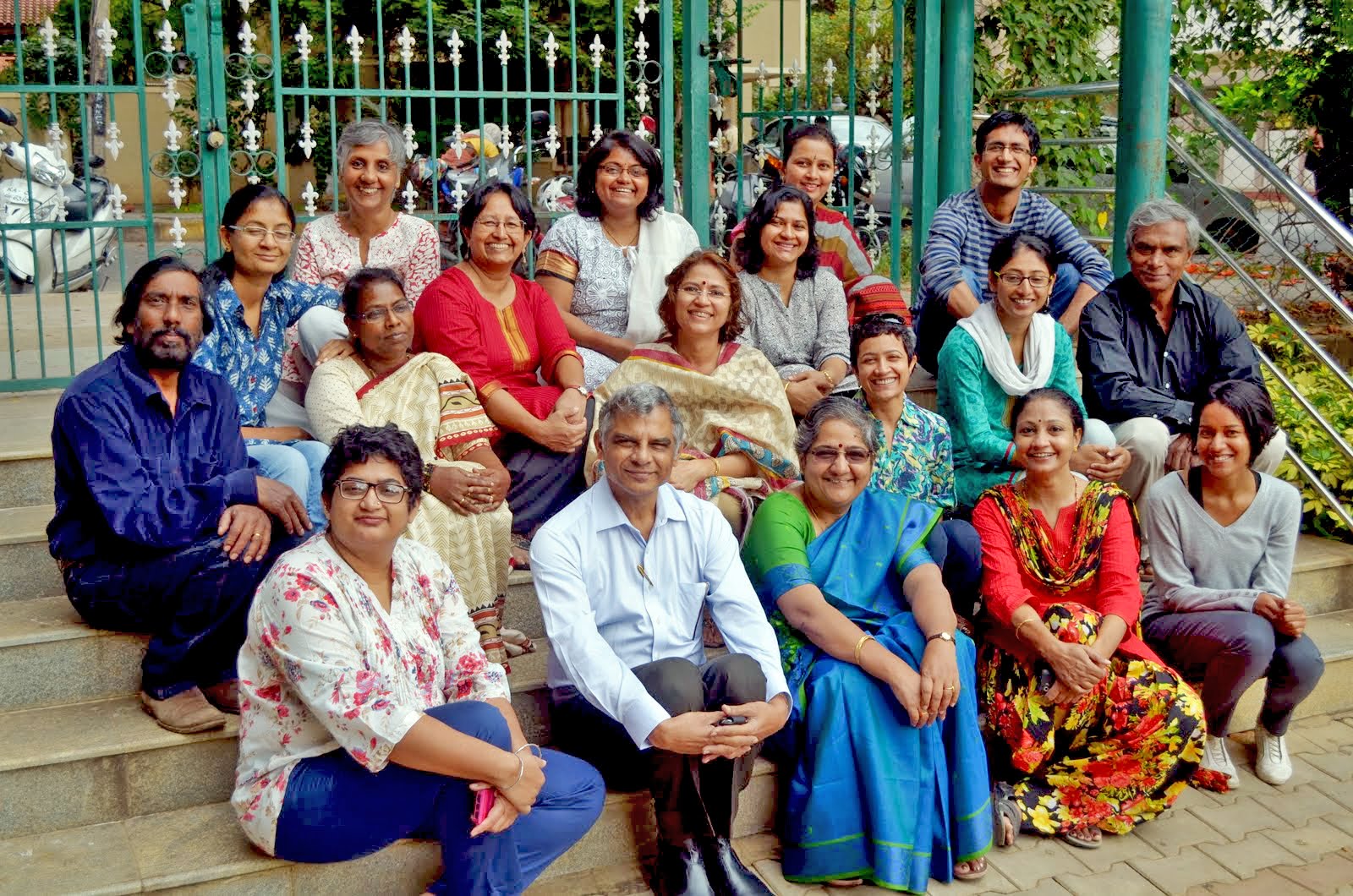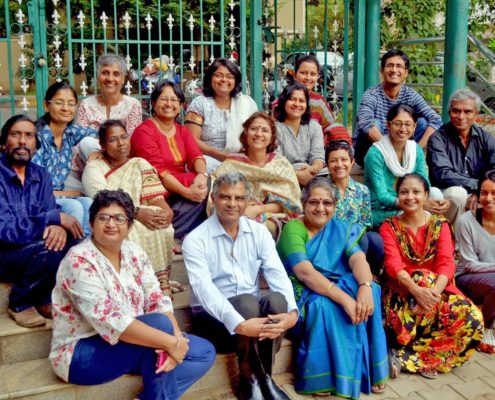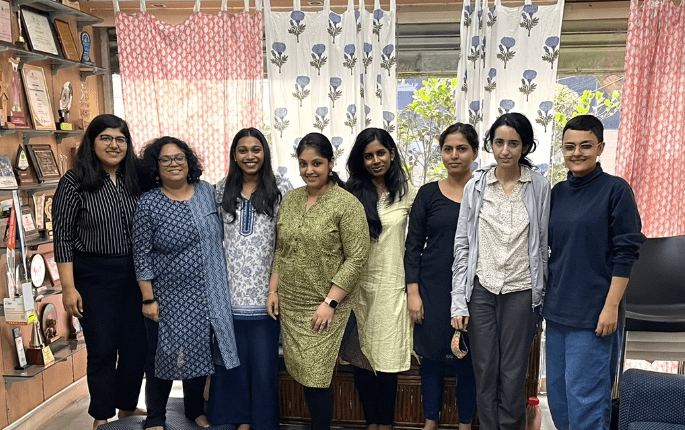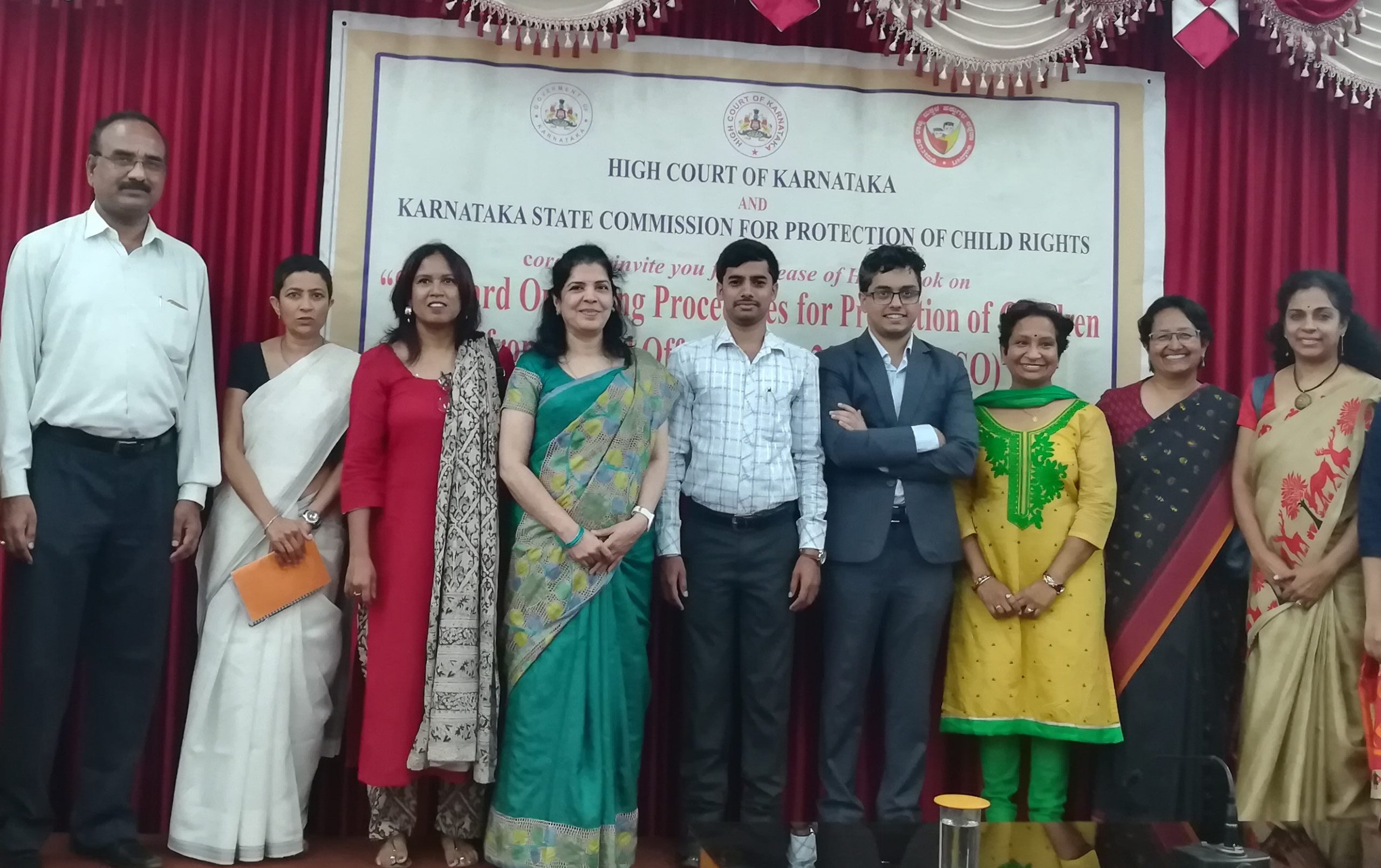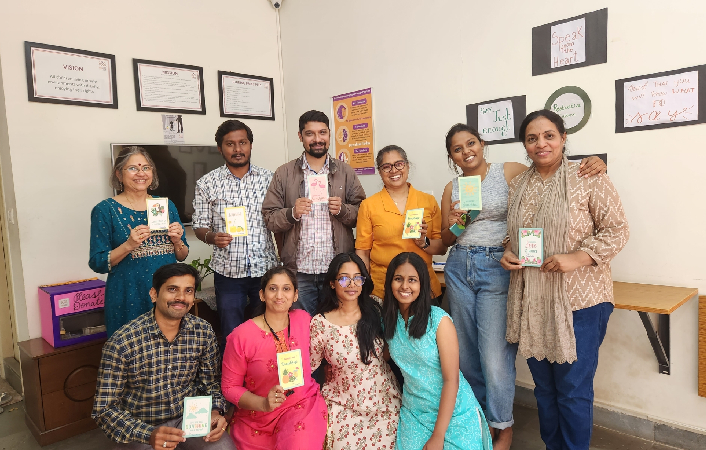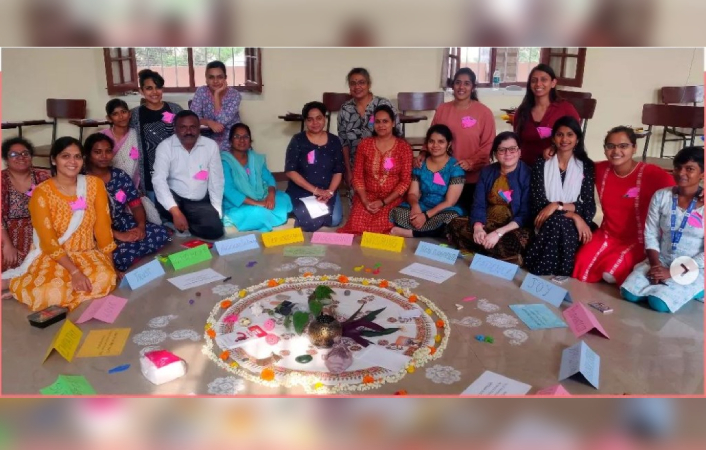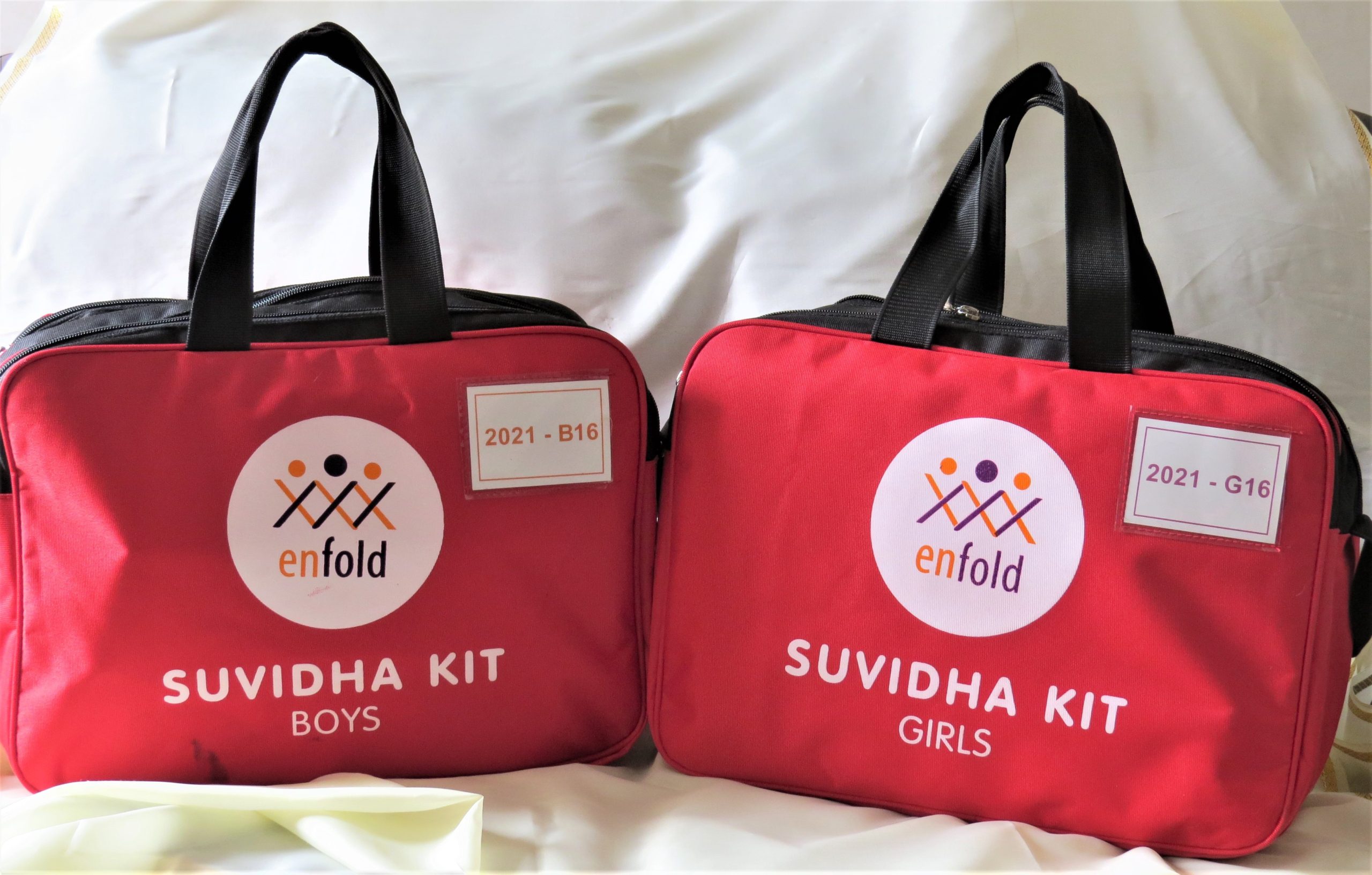Enfold was started in 2001 (and registered as a trust in 2002) by Dr Shaibya Saldanha and Dr Sangeeta Saksena in response to the lack of discourse on sexuality, silence and apathy around gender based violence and child sexual abuse in India. They saw the after effects of this in their day to day practice as gynaecologists. They began conducting sessions on gender equity, sexuality and personal safety education in schools (from grade 1 through 12) and colleges with the aim of creating safer spaces and preventing sexual and gender based violence against children and adults.
The problem was gargantuan. A national study on Child Abuse India, 2007 by the Ministry of Women and Child Development, Govt of India found that 53.2% of over 12,447 child respondents had experienced some form of sexual abuse, with a slightly greater proportion of boys (52.94%) being affected as compared to girls (47.06%). There was no law specifically addressing sexual offences against children.
Based on their experience in schools and colleges, Dr Sangeeta Saksena and Dr Shaibya Saldanha along with Dr Shekhar Seshadri (Psychiatrist and Professor of the Department of Child and Adolescent Psychiatry in NIMHANS), authored On Track – a workbooks series on Life Skills and Personal safety for Std 3 to 9, published by Macmillan Education India. These workbooks included Parents and Teachers Manuals and carried information on adolescent sexuality and prevention of child sexual abuse. (In 2023 these workbooks were expanded to include classes 1, 2, and 10 as well).
From 2007 Dr Shaibya and Dr Sangeeta began training facilitators to take their indegenously designed and developed, culturally relevant, scientific and age appropriate curriculum to more children and adults.
In due course, the Enfold team crystallized the core beliefs underping their approach:
- Education in gender equity, sexuality and personal safety can build acceptance and respect for the body and its sexual and reproductive functions and the diversity in gender and sexuality; promote safe behaviour towards eachother and thereby prevent sexual abuse and gender based violence against children and adults alike.
- One can heal from child sexual abuse and gender based violence with professional help
- It takes community effort and child sensitive systems to keep children safe
- People of all gender and sexual identities have equal right to safety and dignity – and individuals, families, communities, and our laws, policies and systems can promote this.
Dr Shaibya, appearing as an expert witness during the trial of a case of child sexual abuse realized the lack for support available to the child victim and their caregivers as they navigated the lengthy and often confusing medico-legal system. In 2010, Dr Shaibya underwent training on management of child sexual abuse and creation of child protection units in Philippines with support from ISPCAN and UNICEF. Later, she bagan offering this support in India and thus began the Support and Rehabilitation Team. The team successfully trained medical and police personnel, counsellors and social workers and in 2011 inaugurated the first Collaborative Child response Unit (CCRU) at the MS Ramaiah Memorial Hospital. CCRU was intended to respond to the needs of a child who had faced sexual violence in a child-centric and informed manner, using a multi-disciplinary approach, with an aim to reduce system-induced truama to the child.
Between 2011 and 2013, Enfold, in partnership with UNICEF, was involved with the Department of Women and Children Development, Government of Karnataka to create, train and set up CCRUs in 7 hospitals in Bangalore. With the Government of India notifying the One Stop Center Scheme in 2013, the CCRUs were merged with the OSCs.
The team was actively involved in conducting research on the implementation of the POCSO Act in 10 districts in Karnataka in ….. and worked with different stakeholders to develop SOP……
Currently the Support and Rehabilitation team supports close to 75 children who have reported sexual violence. They are also involved in training Support Persons in the states of Jharkhand, Karnataka, Rajasthan, Uttar Pradesh and West Bengal so they can be appointed by CWCs to assist child victims under the POCSO Act. The decade of experince in working with child victims led to a Handbook for Support Persons being published in 2022 and the same has been translated into Kannada, Hindi and Bengali.
After 15 years of experience of working with children in mainstream schools and in the community, Dr Sangeeta and Dr Shaibya felt they were ready to offer the education on gender equity, sexuality and personal safety to children with disabilities. In 2016 they began the pioneering Suvidha Project -the first inititative of its kind in India. The team developed, tested and made available a teaching learning visual tool kit – the Suvidha Suraksha kit to the parents and teachers of children with intellectual disabilities, Autism and related conditions and offered the necessary training and capacity building in sexuality education in the context of disabilities. Later the Suvidha Sparsh kit was made available for use by children with visual and hearing impairment. The team received encouragement and advice from several individulas and national level organizations active in this field.
Enfold’s prevention team had based its education on life skills like self awareness, emotional management, decision making, relationships etc from the very beginning. Enfold team members were exposed to Restorative Practices in 2016 during a training organized by NLSIU and others and conducted by sujatha baliga. They received further training from national and international practitioners. Seeing the effectiveness of Restorative Practices, especially Restorative Circles in building and strengthening community, imparting social and emotional learning, addressing misbehavior or harm, and repairing relationships, Enfold started its Restorative Practices team in 2018. Sine then, the team has been facilitating Restorative Circles with the staff and children of Observation Homes, Place of Safety, and Children’s Homes as well as in schools.The team also uses Restorative Practices to enable reintegration of children with their families and address conflict and harm.
Enfold’s efforts in Research and Advocacy since 2004 were strengthed and amplified several fold with the formation of a dedicated team in 2020. Enfold works on issues of child protection to advance children’s rights and implementation of laws. Team members have supported State Governments with the drafting of delegated legislation and child protection policies, and also contributed towards preparation of SOPs, Guidelines, and Handbooks to aid the working of systems and functionaries for advancement of children’s rights.

